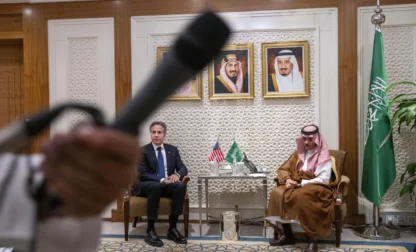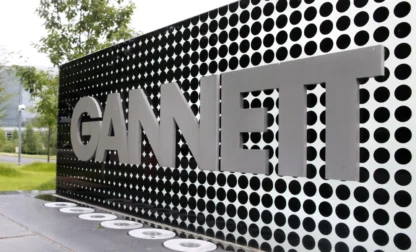WASHINGTON (AP) — The Justice Department announced Friday that it is toughening its guidelines for subpoenaing reporters' phone records, and also raising the standard the government needs to meet before it can issue search warrants to gather reporters' email.
The changes follow disclosures that the Justice Department secretly subpoenaed almost two months of telephone records for 21 phone lines used by reporters and editors for The Associated Press and secretly used a warrant to obtain some emails of a Fox News journalist. After a barrage of criticism from lawmakers, the news media and civil liberties groups, Obama ordered Attorney General Eric Holder to review the Justice Department’s policy on obtaining such material, and set Friday as the deadline.
In announcing the changes, the Justice Department said it will create a News Media Review Committee to advise its top officials when the department seeks media-related records in investigations.
Under one of the changes being made, the government must give advance notice to the news media about subpoena requests for reporters’ phone records unless the attorney general determines that “for compelling reasons,” such notice would pose a clear and substantial threat to the integrity of the investigation. That’s a change from the current procedure, which puts the decision in the hands of the assistant attorney general for the criminal division, with review by the attorney general.
“It is expected that only the rare case would present the attorney general with the requisite compelling reasons to justify a delayed notification,” the report said.
In another change, the government will issue search warrants directed at a reporter’s email only when that member of the news media is the focus of a criminal investigation for conduct not connected to ordinary newsgathering activities.
“Under this revised policy, the department would not seek search warrants … if the sole purpose is the investigation of a person other than the member of the news media,” the report stated.
The report also said the department would revise current policy to elevate to the attorney general the approval requirements for all search warrants directed at members of the news media.
In the AP story that triggered one of the leak probes, the news organization reported that U.S. intelligence had learned that al-Qaida’s Yemen branch hoped to launch a spectacular attack using a new, nearly undetectable bomb aboard a U.S.-bound airliner around the anniversary of Osama bin Laden’s death.
In the Fox News story, reporter James Rosen reported that U.S. intelligence officials had warned Obama and senior U.S. officials that North Korea would respond to a United Nations Security Council resolution condemning nuclear tests with another nuclear test.
Holder and the Justice Department have said repeatedly that there was never any intention of charging Rosen with a crime, although an FBI agent referred to the reporter as a co-conspirator when filing an application for an affidavit. The only charges filed have been against the alleged leaker in the case.
“It appears that they are recognizing that the very broad subpoena of the AP’s phone records was too aggressive,” said Lucy Dalglish, dean of the journalism school at the University of Maryland who until recently was head of the Reporters’ Committee for Freedom of the Press. “They also recognized that they are not going to prosecute a reporter for basic newsgathering activities unless they have reason to believe the reporter is involved in the alleged breaking of the law. That has not been all that clear in the past.”
She added: “The devil will be in the details. They left themselves a little bit of wiggle room.”
David Schulz, an attorney who represented the AP in the case, called the new guidelines “a major positive development.”
“Just about everything the attorney general can do unilaterally to tighten these guidelines, he has,” Schulz said.
Erin Madigan White, the AP’s senior media relations manager, said the news cooperative “is gratified that the Department of Justice took our concerns seriously. The description of the new guidelines released today indicates they will result in meaningful, additional protection for journalists. We’ll obviously be reviewing them more closely when the actual language of the guidelines is released, but we are heartened by this step.”
Holder met Friday with Obama in the Oval Office to discuss the changes, and White House spokesman Matt Lehrich said the president agrees with Holder’s recommendations and considers the report an important step toward the proper balance between national security and press freedoms.
Lehrich said Obama had directed his team to explore alternative approaches to cracking down on leaks, such as revoking security clearances or other punishments. “Pursuing a criminal investigation and prosecution is not always the most efficient and effective way to address leaks of classified information,” he said.
Holder also endorsed the proposal for a shield law that would protect reporters. “While these reforms will make a meaningful difference, there are additional protections that only Congress can provide,” he said. “For that reason, we continue to support the passage of media shield legislation.”



